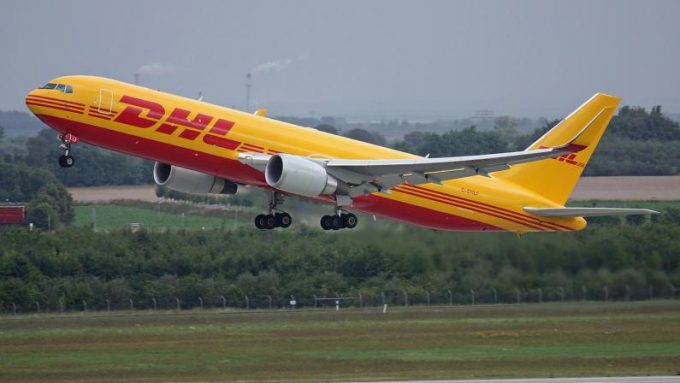Threat of rising oil price adds to frustration for crisis-hit supply chain chiefs
New warnings from the World Bank of surging oil prices, adding to the continuing instability ...

DHL Global Forwarding has set up a dedicated charter operation between its European hub at Liege (LGG) and Tel Aviv (TLV) in response to the decline in belly capacity following the outbreak of conflict in Israel.
The B767-200 freighter, organised through its StarBroker Charter operation has a payload of 40 tons, dedicated to “continue serving [DHL’s] immediate customer’s capacity needs” after “most carriers revoked their flights to and from Tel Aviv”.
It ran three flights this week, but a DHL spokesperson told The Loadstar: “Given the very dynamic situation, we cannot currently say how long we will continue to provide this service.”
Meanwhile, MSC, Maersk and ONE have all temporarily suspended detention and demurrage charges until 8 November on outbound and inbound box detention for all locations in Israel.
In addition, Maersk has also announced “a number of relief packages for customers with cargo in Israel, or bound for Israel”.
It is offering waived spot booking amendment/cancellation fees for all export and import cargo for bookings made from 17 October until further notice, along with free change of destination (COD) service fees – subject to re-stowage and shifting costs, plus any ocean freight price difference to the new destination.
Israeli carrier Zim has implemented a “war-risk premium surcharge” on cargo gated since 12 October. Depending on the service, the surcharge ranges from $50-$100 per teu. For shipments between the US and Israel the surcharge will apply on cargo gated since 17 October and on shipments from China will be applied only to Haifa and Eilat ports.
Intra-Europe carrier Turkon said similar surcharges, $90 per teu and $180 for all 40ft and 45ft container types, respectively, would be applied to all Israel cargo.
Meanwhile, new government regulations have forced carriers to stop accepting dangerous cargo (DG) bookings to and from Ashdod and Haifa.
Although the ports of Haifa, Ashdod, Hadera and Eilat remain operational, there are longer wait times due to a shortage of workforce and increased security checks. The port of Ashkelon, the nearest to Gaza, has stopped operations due to missile attack threats.
Reuters reports Israel’s tax authority will offer compensation for “war damage” to any Israeli or foreign vessel located within the country’s economic waters.
Ritesh Kumar, director, procurement and supply chain intelligence at consultancy The Smart Cube, has voiced concerns about the conflict’s impact on wider supply chains, particularly how it “poses a major geopolitical risk for oil markets”. He said: “Amid concerns that the war could disrupt output in the Middle East region… a substantial rise in oil prices and fuel inflation is possible in the near future.”
He added: “Should the war expand beyond Israel’s borders, it is likely to impact critical shipping routes, such as the Suez Canal. This may lead to delays in shipments and could drive up prices of various agricultural commodities, such as wheat, which are traded regularly between Europe and Asia.
“As the war continues, it threatens to disrupt the global semiconductor supply chain, as Israel plays a significant role in chip production and innovation.”
Comment on this article